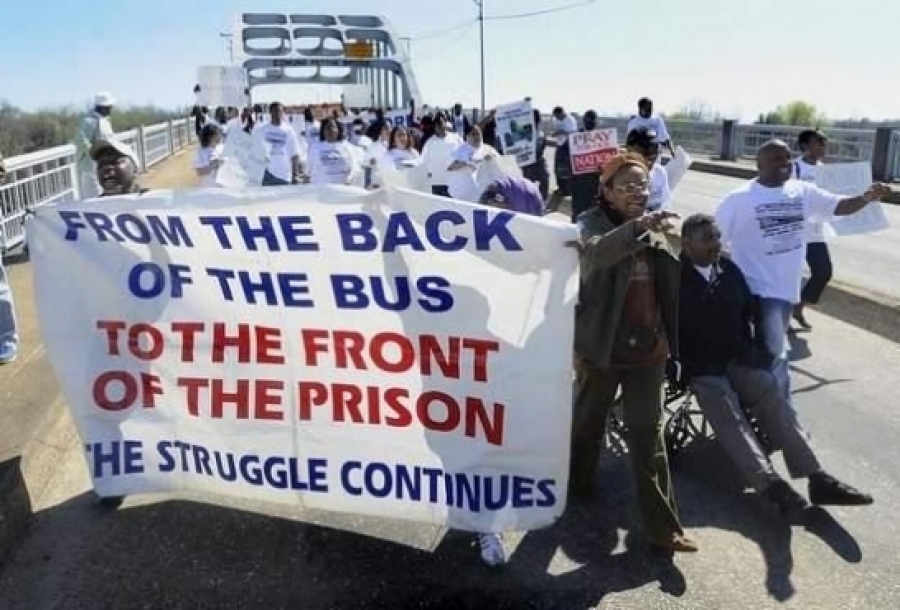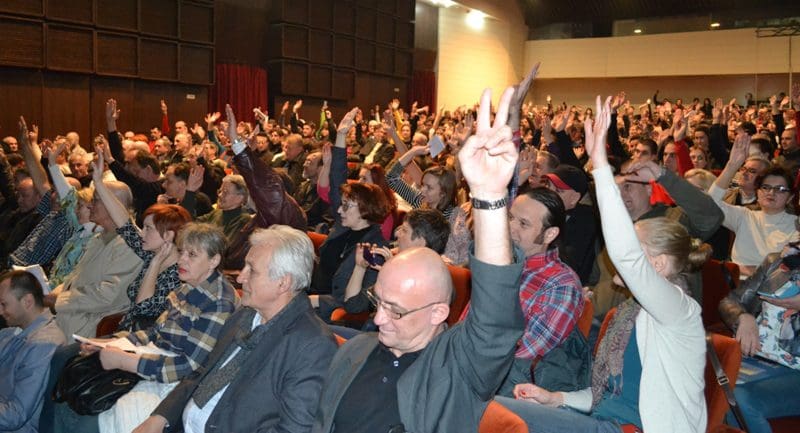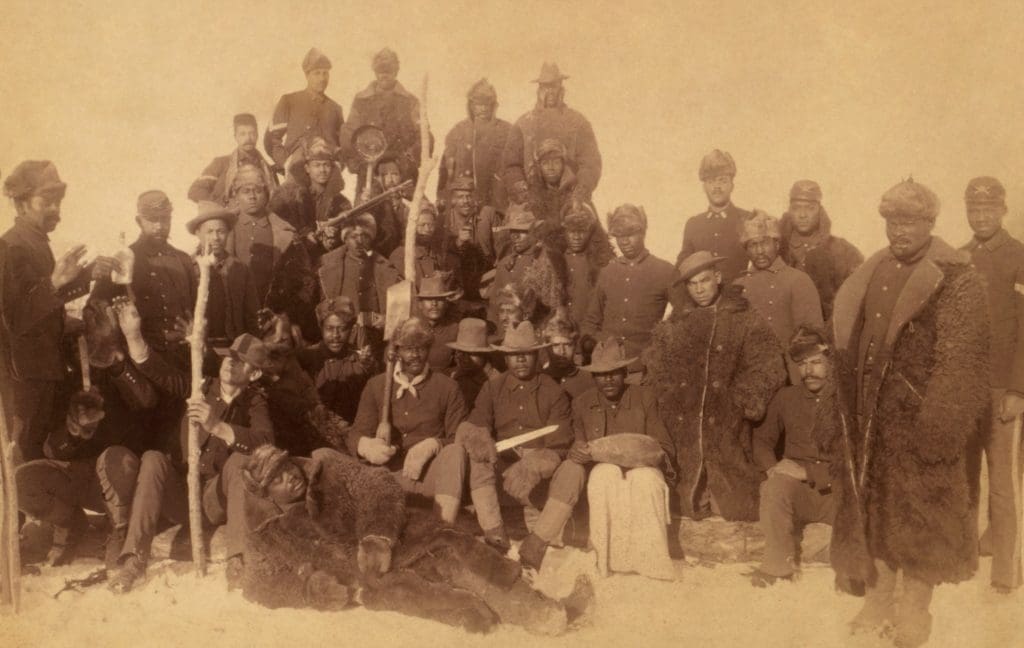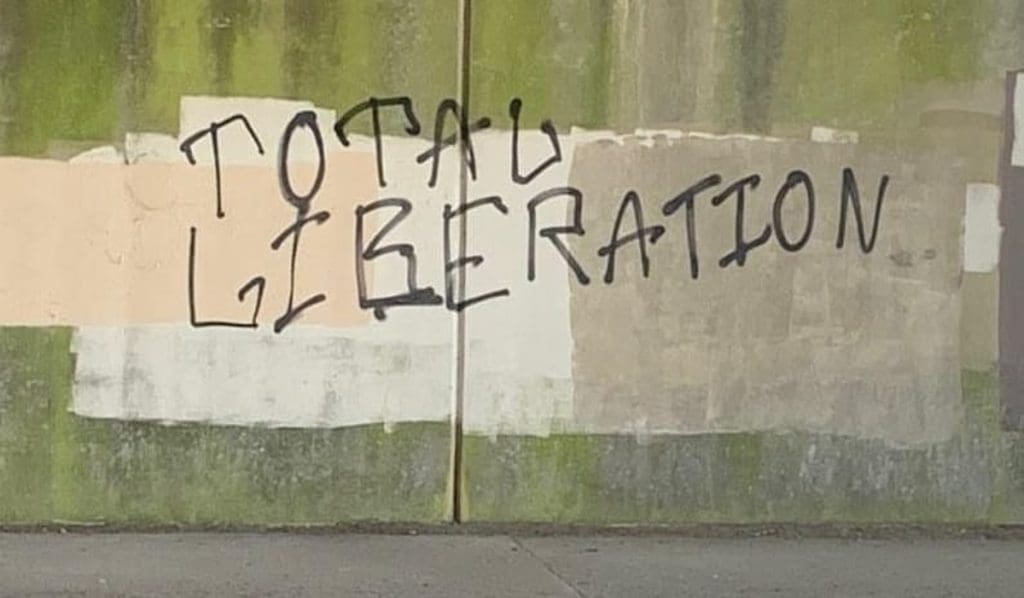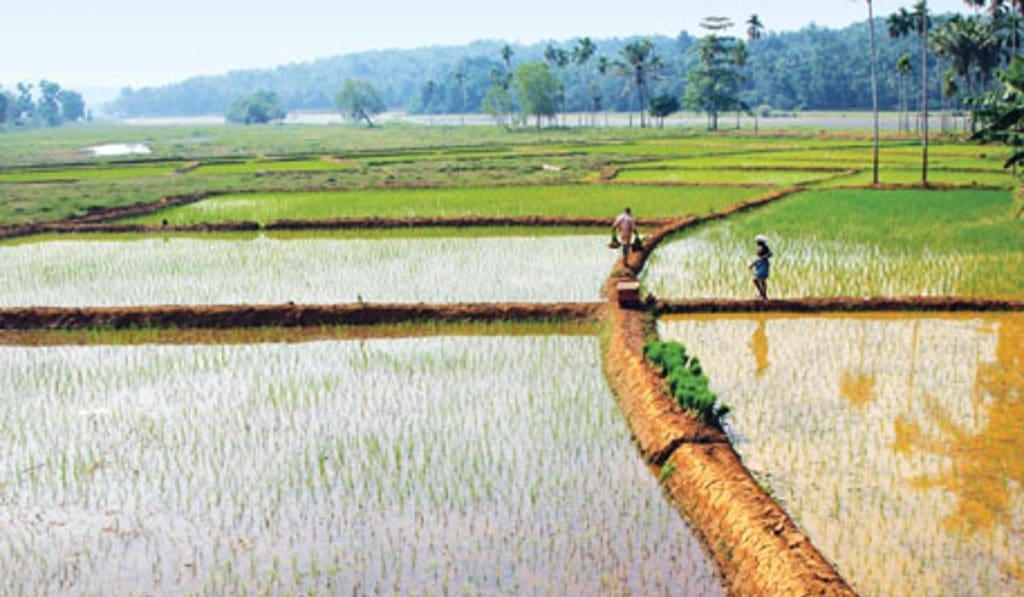Transcribed from the 24 June 2017 episode of This is Hell! Radio (Chicago) and printed with permission. Edited for space and readability. Listen to the whole interview:
When I was a kid, there were two huge buildings in my neighborhood, just a couple blocks from my house. One of them was a federal penitentiary, and the other was a Ford plant. Today, thirty years later, one of those buildings is closed, and the other is bigger.
Chuck Mertz: For years, African-Americans have been given the rap that they don’t do enough in promoting a law-and-order agenda in their own community, and instead are more critical of cops than crime. It’s a horrible myth that we will enjoy busting while discussing the disturbing role of African-Americans throughout the mass incarceration state, from imprisoned victim to tough-on-crime political leadership with our next guest, former public defender James Forman, Jr., author of Locking Up Our Own: Crime and Punishment in Black America. James is a professor of law at Yale Law School.
Welcome to This is Hell!, James.
James Forman, Jr.: Thank you.
CM: You mention what you call the ‘Martin Luther King speech’ that Curtis Walker, an African-American superior court judge in Washington DC was famous for. “And today,” you write, “Brandon, my 15-year-old client, was on the receiving end of the speech.”
You explain how Brandon had pleaded guilty to possessing a handgun and a small amount of marijuana—enough to use but not to sell. You had argued for probation. “Judge Walker told Brandon he was considering my proposal, but first he had some things to say.” Then, after quoting what you call judge Walker’s King speech, you sum it up as: “Life is not easy for African-Americans today, but it’s better than it was, and you best stop being a thug and start taking advantage of the opportunities that others fought so hard for.”
What does that kind of speech reveal to you about the US justice system and the way it treats young men of color?
JF: It reveals how many people, how many constituents and how many aspects of different communities were all involved in some way, shape, or form over the last forty or fifty years in creating this horror show and human rights crisis that we now call mass incarceration.
I was a public defender in the 1990s, and I had taken that job precisely because I saw this as the civil rights fight of my generation. My dad is from Chicago, moved out in the 1960s to join SNCC, the Student Nonviolent Coordinating Committee. My dad’s African-American; my mom is white; she also joined SNCC. They were an interracial couple at a time when such marriages were illegal in many states. And now, a generation later, I, their child, had all kinds of opportunities that were unheard of for an African-American man of my dad’s generation. But at the same time, I could see that one in three young black men was under criminal justice supervision. So not everybody had benefited.
When I’m representing somebody like Brandon in the story you described, I do it with the idea that I’m continuing that civil rights legacy. And then the judge you described, an African-American superior court judge, flipped it. He invokes the same civil rights tradition that I imagine supporting my work—but for opposite ends. He invokes it as a way of lecturing Brandon and telling him basically that he’s letting the community down and that he needs to send a message. And he locked him up.
It was at that moment that I realized somebody really needed to write this history and tell this story about how many in the African-American community—sometimes for understandable reasons, sometimes not—over the last forty or fifty years have ended up endorsing a lot of the policies that the country was following. That’s the puzzle of the book: how and why did that happen? Where do people like judge Walker come from? What are their motivations? And also, how can we chart a different path going forward?
CM: You write about your parents’ deep involvement, as you were just discussing, with the 1960s civil rights movement, and add, “Now, thirty years later, I was an African-American clerking at the supreme court, beginning a professional life that would not have been possible without generations of sacrifice and struggle. But despite the gains of the civil rights movement, I knew that progress wasn’t the whole story.”
And that seems to be what judge Walker is focusing on: the progress of the civil rights movement. What is missed when we focus only on the success, the progress of the civil rights movement, when we celebrate how much better it is now compared to the time of lynchings and whites-only segregation? What do people like Walker miss when they only talk about the successes of the civil rights movement?
JF: They miss the incredible limitations and constraints and pressures that people like Brandon and my other clients are living under. They miss the legacy of segregation and redlining and the vacuuming of wealth out of black communities, which Ta-Nehisi Coates has written about so powerfully. They miss the fact that somebody like Brandon is growing up in a neighborhood where there are no jobs, where the schools are underfunded, where we only have one treatment bed for every ten people who need it, where we have let everybody out of mental institutions—a 95% reduction with no concomitant replacement of those institutions with community-based care, which was the promise.
All of those things come together, and then there is geographical and residential isolation. There is a black working class and a black poor who are trapped, who are isolated, who have been left behind by the rest of society, and to whom the one institution we now give them is prison and the criminal justice system.
When I was a kid growing up in Atlanta in a working class African-American community, there were two huge buildings in my neighborhood, just a couple blocks from my house. One of them was a federal penitentiary, and the other was a Ford plant. Today, thirty years later, one of those buildings is closed, and the other is bigger. And we know the story. The one that’s closed is the Ford plant. Those jobs are gone. They’re overseas. And the building that’s bigger is the federal penitentiary.
So the story of progress, which of course is an important one, is part of the story, and it’s true. But when we focus on it alone, we miss all of those other pieces, and then we miss the lived reality of somebody like Brandon and other African-American folks who are really trapped.
CM: What do you think judge Walker’s intent is in giving the Martin Luther King speech, as you call it? How would you rate the effectiveness of that speech? What does it do for somebody like Brandon, who the judge then finds guilty and sentences? What kind of message is that sending to Brandon? Is it having any positive impact whatsoever?
We put these places so far away. We isolate, we exclude, we segregate. We make communication almost impossible, we cut off the media, and then the average person doesn’t know what’s going on inside.
JF: I don’t know. I have to confess, it would be very hard to be a judge. I don’t want to sugarcoat it. They’re sitting there, they have these brief moments in time, these short interactions; they’re asked to make a judgment about somebody’s potential; they have a lawyer like me, in this case asking for probation, pointing out that this is Brandon’s first arrest, pointing out that his teachers and his counselors are vouching for him, his mom and grandmother are in court—and then they have a prosecutor, who in this case happened to be an African-American juvenile prosecutor, and she’s arguing for him to be locked up, and she’s pointing to things in the record that suggest that Brandon is maybe hanging out with gangs and things like that. And the judge doesn’t know Brandon. He’s got ten or fifteen minutes to make a decision. So I want to recognize the difficulty of that position.
At the same time, it seems to me that a speech like that really has very little effect. In particular, it has little effect if it’s followed up by a prison sentence, as it was in this instance. It would be one thing if the judge were to give that speech and then were to put Brandon on probation. It’s a lecture, a warning shot, maybe you could send somebody a message. But when you give that speech and then you follow it up with a prison sentence, in this case putting him in a juvenile facility in Washington DC which is a juvenile facility in name only—I mean, the truth is, we should just call it what it is: it’s a dungeon. No functioning school, no job training programs, no mental health programs to speak of.
Giving that kind of speech, that kind of lecture, and then following it up by putting somebody in a institution which every shred of research we have suggests is going to make them worse off and therefore is going to make the community worse off—because when he comes out, he’s been degraded, he’s been traumatized, he hasn’t been educated—to do all of that is folly.
CM: You write about the shortcomings of DC’s juvenile detention center, Oak Hill—you were just talking about how it’s more like a dungeon than a juvenile detention center. These are still children. They are still minors. And now we’re putting them into a facility that, as you say, could actually criminalize them.
To you, what explains those kinds of shortcomings that places like Oak Hill have? If these shortcomings are openly known, as it seems they were when you were a public defender, why are they tolerated?
JF: It’s a combination of things. Part of it is isolation and secrecy. I’m telling you that this is what really went on. But we put our facilities as far as we can, physically, from the communities that voters live in, where people are coming from. They are behind high walls and barbed wire. There’s a lot of secrecy attached to them. You’ll read an investigative report in some newspaper, or a journalist will come in and publicize something; maybe there will be a radio investigation. But then those things get quickly forgotten, because there’s so much other news to consume, and these places are intentionally secret so that we don’t focus on how awful they are. That’s one piece of it.
Another piece of it is that there’s a lot of passing the buck in this system. Judges will take tours of juvenile prisons, and they’ll come back and they’ll say it’s awful, that the department of corrections should fix it. When you go talk to people at the department of corrections or the department of youth rehabilitation services, they’ll say the legislature should give them more funding, and the judges should send fewer kids there. And the prosecutors blame the judges, and the judges blame the prosecutors. Everybody blames somebody else for the horrific conditions in a place like Oak Hill. Cook County juvenile facilities are no better, or Los Angeles County.
Yet another part of it is that even the successes, even the facilities that are better than others (because there are some places that aren’t that way)—no juvenile prison is a good thing, because by definition, taking a young person away from their family and their community and putting them in a locked facility is itself traumatizing and criminalizing. Having said that, there are degrees, and there are places that are better than others. And we don’t know those success stories well either, as a nation or as a community.
The final thing is just racism and the disdain with which we hold poor people generally, of all races (race is part of the point and class is part of the point, and we have to see those two together). For poor people, and for people of color, we generally have very low expectations, and our capacity for empathy and mercy and forgiveness is dramatically reduced. Sometimes people say, “Well, they probably deserved it.” But that’s because we define those people in those facilities as other, as not our children, as not from our community.
CM: How much impact can one short stint in juvenile detention have on a person’s entire life? And how much do you think the general public understands the impact of incarceration? Do they not know how bad it is? And does that ignorance lead to supporting even harsher treatment of convicted criminals?
JF: On the question of the impact of juvenile facilities, there is anecdotal evidence and there is more empirical evidence. Anecdotally, I can report to you that I have clients who were incarcerated for the first time, maybe for a short period, what people in the system would think amounts to nothing: three or four months.
(That’s another thing, by the way: we’ve created sentences that are so long—twenty, thirty, forty, fifty years—that when someone gets six months…Brandon got six months, and I think that judge Walker thought that was relatively minor by comparison to these extraordinary sentences that we give out. So we have to reduce those topline sentences so that we really understand six months as being a big deal.)
Anyway, I’ve had clients for short stints who were abused, sometimes by guards, sometimes by other young men who are locked up. And even to those who didn’t suffer physical abuse, there’s a message that we send: you’re a jail person; you’re not worthy of the rest of society. That can have a dramatic impact on how a young person sees themselves and their future.
People who have been incarcerated understand the degradation and the humiliation and the stigma, and how it marks you for the rest of your life. For decades we didn’t let them speak. They’ve never had frontline spokespeople roles in our criminal justice reform effort. But now, formally incarcerated returning citizens are demanding those leadership roles. And when they speak, they have credibility. They have a knowledge base.
And research suggests that, holding everything constant (taking kids from similar backgrounds and similar criminal records and otherwise), putting somebody into even a short period of incarceration doubles the likelihood that they’re going to drop out of high school when they return. This is in part because our schools are not welcoming of kids who come back from a stint in juvenile prison, and in part because the schools in juvenile prisons are typically low-performing, so kids fall further behind.
As to your other question about ignorance and whether people really know: that’s a big part of the story. A prison like Attica, in New York State: almost everyone in that prison is from New York City. But it’s closer to Detroit than it is to New York City. We put these places so far away. We isolate, we exclude, we segregate. We make communication almost impossible, we cut off the media, and then the average person doesn’t know what’s going on inside.
That is starting to change, and I have to say that one thing that does give me some kind of hope and inspiration about the tide turning on some of these issues and the American public becoming more knowledgeable is the fact that for the first time in my lifetime, over the last five years, people who have been incarcerated and who have criminal convictions are finally starting to get leadership roles in criminal justice and legal reform organizations.
There are people like Glenn Martin in New York City, who started Just Leadership USA, and Susan Burton in Los Angeles, who has a new book out, Becoming Ms. Burton—these folks have been on the inside. They’ve been locked up. They’ve seen the inside of prison cells. They understand the degradation and the humiliation and the stigma, and how it marks you as other and as a criminal for the rest of your life. And for decades we didn’t let them speak, hardly. They’ve never had frontline spokespeople roles in our criminal justice reform effort. But now, formally incarcerated returning citizens are demanding those leadership roles. And when they speak, they have credibility. They have a knowledge base.
I was talking to an advocate in Ohio who told me that when he’s trying to meet with a legislator who is hostile to their mission, the most powerful person he can bring to the conversation is one of his employees who has been incarcerated. Because they know the truth, and they can tell the legislator: “You might have read that in the media or somewhere, but here’s what it’s actually like to have three people in a cell the size of a broom closet.”
CM: There’s this horrible idea that law-and-order and tough-on-crime is not as popular within the African-American community as it is within the white community. How popular are law-and-order tactics within the voting African-American community? Does being tough on crime make you popular and win you votes within the African-American community? I’m trying to figure out what explains the idea that the African-American community is tolerant of crime. Because we constantly see and hear government and law enforcement officials saying in the media that they need better community participation in areas of high crime.
So how popular are tough-on-crime and law-and-order tactics among the voting African-American community?
JF: I appreciate you highlighting this in your introduction to the book before you even asked me the first question. If there’s one thing that my book does, I hope it’s to put to rest the myth that somehow African-American community members only care about crime and violence when it’s police crime and violence, and when it’s within our own communities people turn a blind eye. Nothing could be further from the truth. This book is a 240-page rebuttal to that lie. You see page after page after page of citizen testimony.
I went back and looked at archives from city council members in the DC area, and saw African-American citizens writing to African-American elected officials saying “I feel like a prisoner in my own home, I can’t go outside on my street. I can’t take my kids to school because there are drug dealers on the corner. I can’t leave them in the park because they’re selling drugs in the park, and they’re shooting in the park, and there are dirty syringes. Do something. You have to clean up and protect our community.” So the desire for protection has been very powerful, and in some instances that has translated into support for things like mandatory minimums, and aggressive pretextual street stops, stops on minor traffic violations so the police can search for drugs. It’s led to support for longer sentences both for drug crimes as well as violent crimes. That’s very much been a part of the story for the last forty or fifty years in African-American communities.
At the same time, the same folks who are arguing for more police and more prosecution, over and over again, were asking that what we might call root causes be addressed. They were saying, “We need more money for schools, and more money for mental health, and more money for job training. We need a Marshall Plan for urban America. We need America to invest in our nation’s black communities the way we invested in Europe after world war two. We need national gun control legislation, we’ve got to stop guns from flooding into our communities, and only congress can help us.”
They had all of these other strategies for fighting crime and violence. Police and prosecutors, yes, but also all these other things. But: because of racism, because of an indifference to black suffering, because of the fact that black political power has been concentrated in cities and not in congress—for all of these reasons, African-American voters and elected officials never got all-of-the-above. We only got one of the above. And what we got—which we were asking for, but it wasn’t the only thing we were asking for—was law enforcement.
Racism and white supremacy have been central to the formation of American society and our criminal justice system. I’m a law professor. I teach constitutional law. We cannot talk about our founding documents without focusing on the role of racism. This is a country that had slavery for longer than we have not had slavery. This is a country where slavery is embedded in our constitution.
CM: How much are African-Americans the perpetrators of the mass incarceration system that African-Americans are protesting? And how careful do we need to be in blaming African-Americans for mass incarcerations? Are we letting white America off the hook for their role in mass incarceration?
JF: I am so glad you asked that question. That is a question that I’ve thought about from the time I started working on this book, and it is very important to me. Remember I’m someone who came to the work because I viewed it as the civil rights movement of my generation. I was doing this work before we even had the term mass incarceration. I became a public defender in the early 1990s. So those are my commitments, and those are my beliefs.
It is crystal clear to me that racism and white supremacy have been central to the formation of American society and to our criminal justice system. I’m a law professor. I teach constitutional law. We cannot talk about our founding documents without focusing on the role of racism. This is a country that had slavery for longer than we have not had slavery. This is a country where slavery is embedded in our constitution. So racism, both in our history and up until the present moment, is central to all aspects and all structures of American society including our criminal justice system.
People like Richard Nixon and Barry Goldwater and Ronald Reagan, who used coded language of crime because they wanted to signal to voters that they were talking about black people in an era when you couldn’t be explicitly anti-black—this is an important part of the story. My argument in this book is just that it is not the whole story. What I want to do is build on the work of people like Bryan Stevenson in Just Mercy and Ta-Nehisi Coates in Between the World and Me, Michelle Alexander in The New Jim Crow, Elizabeth Hinton and her incredible book, Heather Thompson, whose book on Attica just won the Pulitzer Prize, Mark Mauer, David Cole—there are decades now of scholars who have portrayed some of the ways in which racism and indifference to black suffering have created mass incarceration. What I want to do is tell another part of the story that I think complements that and builds on that but in no way is intended to distract our attention from that account.
I believe that we can keep two ideas in our head at one time. I think we have that capacity. I want to say that history is profoundly important—and I still want to talk about people like judge Curtis Walker. I still want to talk about the 800% increase in African-American elected officials in the 1970s. I still want to talk about a DC city council that passed longer drug laws and longer gun laws and mandatory minimums. That history is important too, and we can talk about both.
CM: Let’s talk about that two ideas in our heads at the same time. The two ideas that I want to keep in my head at the same time here are class and race.
You write, “Understanding African-American attitudes and actions on matters of crime and punishment requires that we pay careful attention to another topic that is often overlooked in criminal justice scholarship: class divisions within the black community.” And you stress in your writing how this isn’t just about incarcerating black people, it’s about incarcerating poor black people.
While I was reading this book, a listener posted a comment on an interview we did last week with sociologist Joshua Murray about how anti-unionism, not unions themselves, killed Detroit and the auto industry. Listener Francesco, who recently moved from Portland, Oregon, back to Italy, writes: “Just about nowhere I have visited or lived is class consciousness as piss-poor as it is in the US, a.k.a. The Divided States of Amnesia.”
How much is understanding African-American attitudes and actions towards crime and punishment undermined by the general and overall lack of class consciousness in the US relative to the rest of the world? How much is our own lack of class consciousness leading to our misunderstanding of everything?
JF: Thank you. I think that’s exactly the right question. As you quoted from the book, I think that class is foundational to understanding African-American attitudes towards crime and punishment. And I’m talking about class division in all aspects of America; I’m talking about white America. In a number states in this country, you will find majority-white prisons. The thing that I can tell you about those prisons is that even though there are a lot of white people in them, those white folks are poor and they are under-educated. Many of them come from homes where they struggled with addiction. Many have had trauma in their lives that hasn’t been adequately treated.
Right now in this country we are talking about a Republican Party that ran on saying, “We are going to speak up for white working class and white poor folks” and is in the process of trying to pass legislation that would cut mental health services and addiction services and treatment and healthcare for a lot of poor and working class white folks. The only reason that happens and they get away with it is our lack of understanding about class and the fact that a lot of American citizens don’t want to talk about class. As soon as you start to introduce the conversation, people say you’re engaging class warfare.
I think class warfare is a huge tax cut for rich people that results in fewer addiction services and fewer mental health treatments and fewer supports for incarcerated people through Medicaid. I think that is a class war.
Then you add to that the black community. What we know about mass incarceration in the black community is this: if you are a black man who dropped out of high school, you are ten times more likely to go to prison in your lifetime than a black man like me who has completed college. What that means is that when the laws are written by people who have completed college, which they almost always are, but the laws are mostly being enforced on people who have dropped out of high school, then there’s a divide between the lived experiences of those who are writing the laws and the lived experiences of those who are going to prison.
I don’t want to sugarcoat that. Again, this goes to your question of keeping two ideas in our heads at the same time: I think that we can talk about that while at the same time being very clear-eyed about racism. In my mind these are not contradictory. These are complementary forces and they are complementary analytical understandings.
CM: James, truly a pleasure having you on the show this week. Thank you so much.
JF: You take care.

